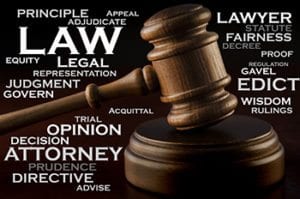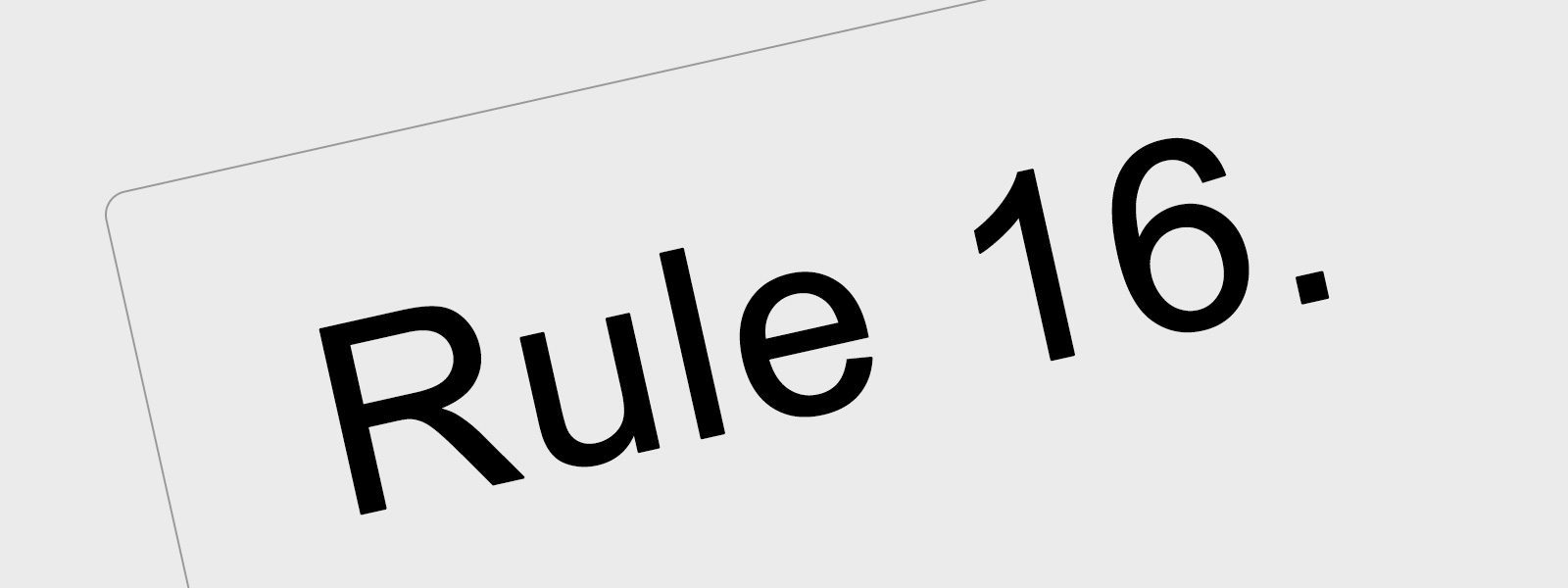Rule 16 Analysis By Adam Bowers, Esq.
 The purpose of Rule 16, in layman’s terms, establishes the powers and responsibilities of the court, as it relates to discovery. Rule 16 first lays out the reasons for a Pretrial Conference. The rationale for this conference is directly in line with the other FRCP Amendment goals. Rule 16 expects that all parties will work together to encourage a speedy and inexpensive judgement, which includes establishing the ground rules for the case right from the start.
The purpose of Rule 16, in layman’s terms, establishes the powers and responsibilities of the court, as it relates to discovery. Rule 16 first lays out the reasons for a Pretrial Conference. The rationale for this conference is directly in line with the other FRCP Amendment goals. Rule 16 expects that all parties will work together to encourage a speedy and inexpensive judgement, which includes establishing the ground rules for the case right from the start.
Rule 16(b) establishes a court-issued scheduling order, unless preempted by local rules. The scheduling order can only be issued after the court has received the parties’ report under Rule 26(f) or after meeting with the parties during a scheduling conference. The court expects parties to complete their due diligence and negotiate their pretrial discovery plan. Some of the order’s subjects cover limiting the time to join parties, amend pleadings, complete discovery, and file motions. Other parts cover the preservation of electronically stored information (ESI), how to set dates for pretrial conferences, and dictate how discovery orders are handled. The goal is to have the process in place to ensure parties work with a plan to get things done in a timely fashion, without surprises.
Rule 16 Amendments shorten the time between the scheduling conference and the issuance of the scheduling order by 33-50%. This ensures Rule 1 is upheld, which demands “the just, speedy, and inexpensive disposition of the action”. This same phrase appears in both Rule 16 and 1, which adds greater emphasis to the overall statement. One note of interest is that the scheduling order can contain almost anything geared towards moving things along in a systematic and cooperative manner. Having the parties work together is one of the grand changes that is expected to keep things productive and positive.
Rule 16(c) requires each side to appoint a person to attend the conference that has the power to negotiate. This ensures the pretrial conference is productive and not merely a billable, unproductive event. Rule 16 also covers the facets of a case that the court has the power to regulate. Judges are granted jurisdiction over the ability to shape the outcome of the entire pretrial process and the power to penalize parties for non-compliance. Rule 16, in essence, allows the court to play a more active role in the litigation process including how preservation, legal holds, and 3rd-party management are handled.
Rule 16(f) deals with the sanctions portion, outlining where the court is allowed to “issue any just orders, including those authorized by Rule 37”, where a party fails to appear at a pretrial conference, does appear but is not prepared to participate or unwilling to act in good faith, or disobeys a pretrial order. Put simply, this means the party or attorney must adhere to the foundational ground rules. Failure to participate or act in good faith of compliance can result in anything from dismissal/summary judgment of the case to being chastised. Rule 16(f) also states the court may impose sanctions, but must order the payment of attorney fees/costs. This cost may be imposed on both the attorney and the client for their misconduct.
From its opening statements, Rule 16 lays out the vast power of the courts which are to keep a trial in motion, by ruling on motions. The court now has the power to discourage wasteful pretrial activities, to accommodate the settlement process, to organize the entirety of the case, and to require more complete preparation of the parties. Rule 16 offers the court the power to ensure the mandate of Rule 1, but is more specific in the duties and roles of all parties involved. Rule 16, while a source of power for the courts, likewise gives guidance to the parties involved in litigation. A good litigator will understand Rule 16 and work with judges to create the most productive process to keep the case moving forward. The bottom line: collaborating on the case with opposing counsel provides the best environment to remain on the court’s good side and present the best argument for the client.
Adam Bowers is a former employee of doeLEGAL, a non-practicing attorney, a graduate of Albany Law School, and a seasoned eDiscovery expert. With law firm experience and knowledge of legal technology solutions, his unique perspective on combining both law firm strengths with advanced legal technology has helped numerous law firms add greater value to their global client base.






